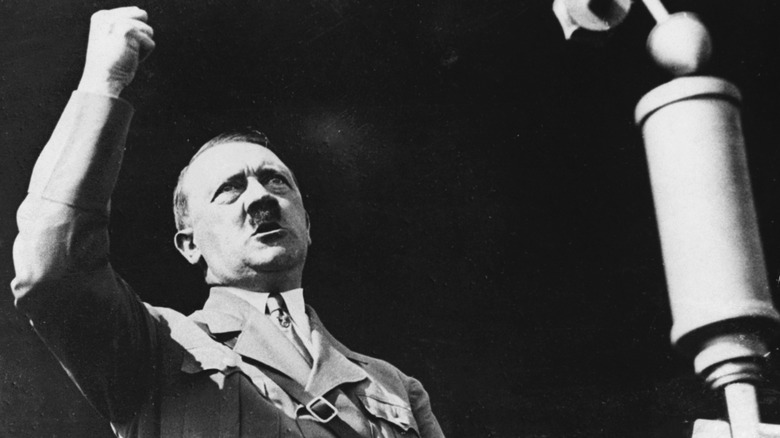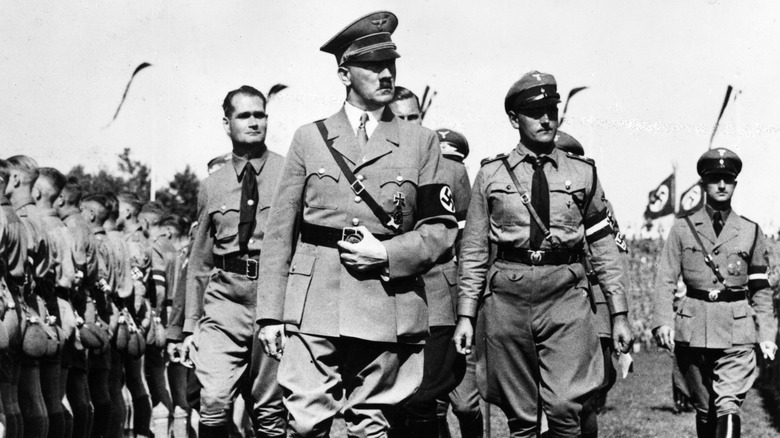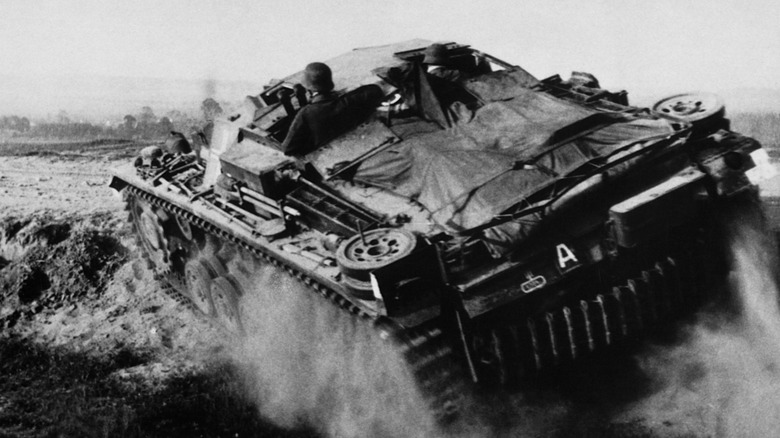These Were Hitler's Plans For Russia If He'd Won WWII
It is widely believed that if the Allied Forces lost World War II, the results would have been disastrous for humanity. In Germany, Adolf Hitler's Nazi regime had shown itself to be both expansionist and murderous, attacking neighboring territory throughout Europe and committing the horrors of the Holocaust, which saw the systematic killing of 6 million Jews and millions of other people the Nazi considered "undesirable." Like expansionism, the killings were based on a twisted ideology that Hitler laid out in his book "Mein Kampf." It argued for the establishment of a racially and culturally homogenous Germany with enough "Lebensraum," or living space, for the ethnically-cleaned nation to claim as their own.
The question of what the world might have looked like if Hitler had won has fascinated both artists and historians for decades. Philip K. Dick's novel "The Man in the High Castle" explores this alternative line of history, portraying the Nazis and Imperial Japan growing to dominate even the United States after emerging victorious in World War II. But while the image of America under Nazi rule takes a flight of fancy to imagine, historians note that on the Eastern Front, Hitler was at one point within touching distance of having the Soviet Union succumb to his aggression.
The USSR's vast resources ultimately turned the tide and led to the fall of Berlin. But the Nazi's surprise turn against the East, Operation Barbarossa, audaciously sought to deliver a fatal blow against the Soviets. If it had succeeded, Hitler would have been in a strong position to assert dominance over the whole of Europe — and to use Russian land as he pleased.
He likely would have ethnically cleansed Russia
It is often suggested that Adolf Hitler's Nazi Germany planned to conquer the entire world. While it is almost impossible to imagine how things might have gone in the long run had Hitler won World War II, it is pretty certain what he would have done with Russia had Operation Barbarossa been successful in its aims. First coined by the German ethnographer and social Darwinist Friedrich Ratzel in the early 20th century, "Lebensraum" became a keyword in Nazi policy making. Hitler, who served in the German Army in World War I, was incensed by the Treaty of Versailles, which at the war's end demanded billions in reparations from Germany for the damage it had done to its neighboring countries and reduced its territory by 10 percent. Ratzel had argued that human civilizations were inherently competitive, and that to dominate a nation, it must have enough living space for its people to thrive.
For Hitler, Germany's destiny was to establish itself as the dominant "Aryan" nation in Europe. This could only come to pass if the country expanded, particularly in the east, to claim land as its rightful Lebensraum. Had the USSR fallen, it seems likely that the nation would have been ethnically cleansed and purged of Bolsheviks, with undesirable Russians killed or exiled to Siberia and the land Germanified.
He probably would have destroyed Leningrad and Moscow
The brutal reality of how Russians would have been dealt with by Nazi occupiers is reflected in both the huge violence of Operation Barbarossa itself and in the details of how far the invaders would have gone to subdue the USSR and its people. In a war diary entry dated July 8, 1941, German General Franz Halder noted (per the Halder War Journal): "It is the Fuehrer's firm decision to level Moscow and Leningrad, and make them uninhabitable, so as to relieve us of the necessity of having to feed the populations through the winter. The cities will be razed by [the] Air Force ... A national catastrophe which will deprive not only Bolshevism, but also Muscovite nationalism of their centers."
The Battle of Stalingrad, which was considered one of the most brutal attritional battles in history, ended with the Nazis burning the city to the ground, giving greater insight into what they may have done to Leningrad and Moscow had it come to it. However, Operation Barbarossa was ultimately a disaster, with historians now considering the campaign one of the most ill-conceived military maneuvers of all time. Though the Soviets suffered more losses, the winter found the Germans unprepared for the cold weather and growing increasingly ineffective in battle. In December 1941, the Nazi forces faced a fiery Soviet counteroffensive, which drove them out of Soviet territory and ultimately turned the tide of the war on the Eastern Front.


